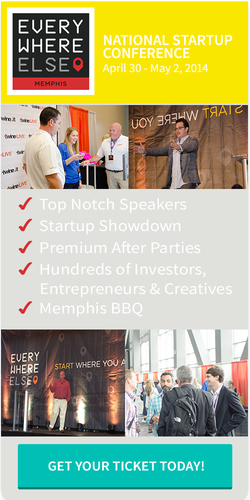 Startups are often in a rush: bigger, better, faster. I see it all the time: businesses striving to scale, to accelerate the growth of their business as quickly as possible — consequences be damned! Scaling is certainly a goal for businesses at some point, but scaling as soon as possible isn’t the answer. Scaling will require your company to use more resources. If you’re not prepared, scaling too quickly can be dangerous — leading to failure instead of success.
Startups are often in a rush: bigger, better, faster. I see it all the time: businesses striving to scale, to accelerate the growth of their business as quickly as possible — consequences be damned! Scaling is certainly a goal for businesses at some point, but scaling as soon as possible isn’t the answer. Scaling will require your company to use more resources. If you’re not prepared, scaling too quickly can be dangerous — leading to failure instead of success.
If you haven’t yet found a viable business model that will allow you to acquire customers at a lower cost than the lifetime value of that customer, you simply are not ready to scale. But you can ready your company by focusing on your finances first. Consider the following suggestions to help you to refocus your company development in a thoughtful and calculated way:
- Understand how growth will impact your cash burn. Your burn rate is simply how much capital you go through every month. Staying on top of your burn rate is essential all the time, and, perhaps, even more so when you’re considering scaling. When you scale, your cash burn will be amplified. Any issues you have with your working capital requirements will be magnified exponentially. So keep a close watch on your cash-flow statement and a tight rein on your expenses. Bootstrap as much as possible to keep your business lean.
- Hire only as needed. When you scale, you will need to expand your staff to support your acceleration. But before you scale, it’s a good practice to get into the habit of only hiring when absolutely necessary. Hiring is a significant cost — not only payroll, but the costs of recruiting, training, retention, etc. To cut costs, outsource as much as possible, especially non-core functions like accounting, finance, and human resources.
- Create milestones for your company. Identify target milestones, create a realistic timeline, and then manage your cash to those milestones. In some cases, this may mean that you need to raise the cash to match and support these milestones. If you’ve already raised cash or are bootstrapping, you’ll need to reduce your burn rate so you can achieve the milestone before your cash is gone. Once your milestones are set, don’t let them slip. Your main focus must be executing to these milestones.
- Get systems in place. Before scaling, make sure you have a solid infrastructure for managing financial processes. How will you manage billing and invoicing on a larger scale? Or, the bigger potential headache of payment collection? If your customer base and earned revenue are still small, that’s when you need to find and establish successful systems and processes.
- Plan for cash-flow positive. If you have revenue, create a plan to help you understand how and when you’ll be able to get cash-flow positive. Scaling requires an increase in cash flow. You need to be prepared to match this with earned revenue.
If you think you’re ready to scale, you may be right. But before you press on that gas pedal, ask yourself: are you sure you have a viable business model, your processes are repeatable, and the market is ready? Once you scale, you’ll be entrenched much more deeply in your processes and making changes will be much more difficult. So take these early days to establish your company model and processes, and gain an understanding of — and control over — your finances, before rushing to scale.
David Ehrenberg is the founder and CEO of Early Growth Financial Services, a financial services firm providing a complete suite of financial services to companies at every stage of the development process. He’s a financial expert and startup mentor, whose passion is helping businesses focus on what they do best. Follow David @EarlyGrowthFS.
The Young Entrepreneur Council (YEC) is an invite-only organization comprised of the world’s most promising young entrepreneurs. In partnership with Citi, the YEC recently launched #StartupLab, a free virtual mentorship program that helps millions of entrepreneurs start and grow businesses via live video chats, an expert content library and email lessons.
Now check out “The Case For Remote Work”
Image: YEC





















